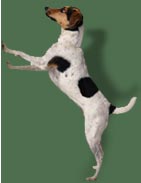Ensuring that your pet lives a long and happy life
means not only feeding, and providing the correct type of Vivarium,
but also providing preventative and ongoing healthcare. This starts
when you bring your pet home for the first time and continues through
adulthood. Learning to observe certain behavior signs may indicate
that you should seek vet treatment. When in doubt always consult
your vet!
Sign that you pet may be sick:
• Slow movements about habitat which aren’t
normal
• Dragging of the hind limbs
• Rapid loss of weight
• Discharge around mouth
• Irregular bowel movements
Common Ailments and Diseases
• Fungal Disease
If you have an aquatic, they are more susceptible to this type of
infection. This disease can often be linked to poor water conditions.
Vet will provide treatment and it is important to apply directly
to sick individual and not add any “home” remedies to
the water.
• Salmonellosis
This bacterial infection can be spread from your pet to you. Signs
of the infection are very much like food poisoning. Your reptile
will harbor this infection within the intestinal tract. It is extremely
important that you carefully dispose of waste and wash hands after
any exposure. Your vet can test for this infection via fecal sample
and provide treatment.
• Lumps and Bumps
Skin tumors do show up occasionally and often are a result of a
viral infection. Males will have them around the face and females
are generally infected around their vent. Not all lumps are tumors
and may just be an abscess. Check with your vet for appropriate
treatment.
• Red Leg
Disease that usually affects amphibians. Redding of the skin on
the surface of the hind legs followed by death. To prevent this
disease changing the water frequently to lower the bacterial count
can aid in prevention.
• Mouth Rot
Bacterial infection which often strikes snakes. If you reptile refuses
to eat and has an unusual odor or breath consult your vet for treatment.
• Vitamin and Mineral Deficiency
Providing a well balanced diet will prevent any related health problems.
Consult with your breeder or vet as to proper diet. Information
can also be found on feeding habits within the breed specific pet
information section.
|

